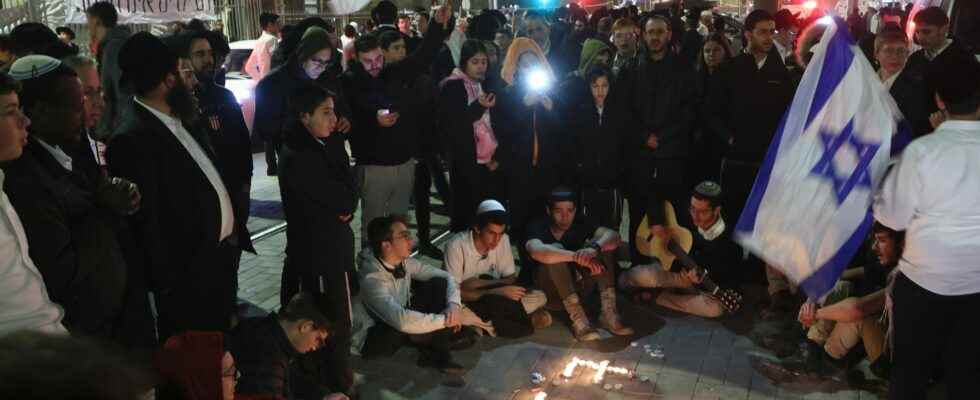In Silwan, below the Esplanade of the Mosques, surveillance cameras scrutinize every street corner, providing all the country’s media with chilling images of Saturday morning’s attack. Hiding behind a yellow Fiat Panda, a thirteen-year-old Palestinian suddenly appears and fires several shots at a group of Jewish passers-by. He seriously injures a father and his son, before being neutralized by an armed man. The vital prognosis of the victims is not engaged but the exceptional youth of the assailant shakes Israelis as Palestinians.
The teenager lives a few hundred meters from the site of the attack, in a three-storey house surrounded, as often in East Jerusalem, by the properties of the other families of the clan. The Israeli police have arrested his parents and his uncle, Firas, cannot understand how his nephew could have obtained a weapon. “We are completely overwhelmed by the situation, recognizes this elegant sexagenarian. In the permanent chaos in which we are plunged, we have lost control over our children. We beg them to be reasonable, to stay away from everything this, but they don’t listen to us anymore. Our children don’t listen to us anymore…”
The terrorist’s uncle: “We have lost control over our children”
On the roof of the neighboring house, Brahim and Mohammed observe the ballet of police and journalists. At twelve years old, these two boys do not lose a crumb of this umpteenth outbreak of violence between Israelis and Palestinians. “We are quite simply avenging our martyrs,” asserts the first, referring to the nine killed in the Tsahal commando operation in Jenin last Thursday. “For the Jews, the one who shot my friend is a hero. For me, it’s the opposite. He’s my friend the hero, and if he dies he will become a martyr,” adds the second, a frail boy with glasses. From the terrace, he points to the Jewish settlements that dot this valley of Arab Jerusalem. Silwan (the city of David for the Jews) is indeed the advanced point of Israeli urban colonization. “They are stealing our neighborhood, we are just defending ourselves,” he continues.
The assurance of the statement says a lot about the politicization of a youth informed mainly by social networks, which have become a powerful lever of mobilization for all Palestinians, beyond the borders established during a century of conflict. In Gaza, Lod, Ramallah or Jerusalem, young Internet users receive the same information, design the same representations. The organic world of social networks offers Palestinian youth a substitute for territorial unity that they have never known and instantly relays the slogans of armed Islamist groups. From now on, there is no need to go underground to receive instructions from Hamas or Islamic Jihad.
Pervasive Fear in Jerusalem
Social networks have probably favored the radicalization of Alquam Kahyri, a 21-year-old Palestinian, author of a particularly deadly attack on Friday evening in Névé Yaakov, a vast colonization district without charm in the far north of the agglomeration. of Jerusalem. Around 9 p.m., he opened fire on passers-by returning from the Shabbat service, killing seven people. Yochi Israel, a woman in her 60s with drawn features, was at her window during the attack. “I saw the horror, she says. He shot good friends of ours in the head. He also shot at my husband but, luckily, he was not hit. We could see the evil in the eyes of this man, evil.”
Like many residents of Jerusalem, Yochi fears a third intifada. In the early 2000s, an unprecedented wave of attacks bloodied the holy city almost every day. A thousand Israelis were killed in these attacks, including relatives of Yochi. “In 2002, my brother and his wife were killed. She was pregnant with twins, underlines the sexagenarian. Since then, I have had no serenity, no respite. tram too. I really feel scared… I’m even scared to go out on the street”.
On Sunday, the entire Névé Yaakov district gathered at the large cemetery of Givat Shaul where the burials of the victims of the attack followed one another. This is the deadliest attack in Jerusalem since 2012 and once again civilians find themselves on the front line.
